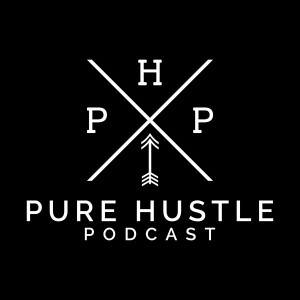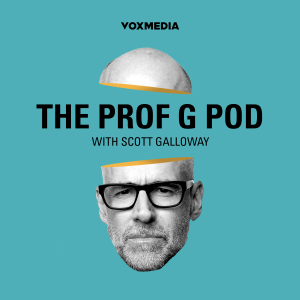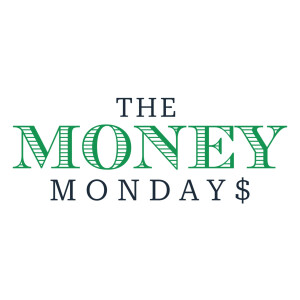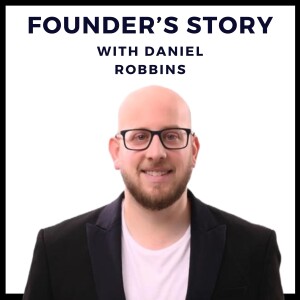

Dr. Dennis met Carrie in the elevator and they would make fun of how skincare products had no real value to them. Then they changed that.
Dave Young:
Welcome to the Empire Builders Podcast, teaching business owners the not-so-secret techniques that took famous businesses from mom and pop to major brands. Stephen Semple is a marketing consultant, story collector, and storyteller. I'm Stephen's sidekick and business partner, Dave Young. Before we get into today's episode, a word from our...
Dr. Dennis met Carrie in the elevator and they would make fun of how skincare products had no real value to them. Then they changed that.
Dave Young:
Welcome to the Empire Builders Podcast, teaching business owners the not-so-secret techniques that took famous businesses from mom and pop to major brands. Stephen Semple is a marketing consultant, story collector, and storyteller. I'm Stephen's sidekick and business partner, Dave Young. Before we get into today's episode, a word from our sponsor, which is, well, it's us. But we're highlighting ads we've written and produced for our clients, so here's one of those.
[Travis Crawford Ad]
Dave Young:
Welcome back to the Empire Builders Podcast, Dave Young here, Stephen Semple is standing by. He told me the title, he told me, the topic that we're going to cover today, the Empire, and it's Dr. Steven Gross.
Stephen Semple:
Dennis.
Dave Young:
Dennis.
Stephen Semple:
Dr. Dennis Gross Skincare.
Dave Young:
It doesn't actually roll off the tongue, Dr. Dennis Gross Skincare. I have to admit, I've not heard of this one.
Stephen Semple:
Well, you're such a skincare buff, I'm kind of surprised.
Dave Young:
Well, a lot of people say I have amazing skin for a 90-year-old man. In my 60s, but...
Stephen Semple:
Now, you may not have heard of it, but the company was started by Dr. Dennis Gross and his wife, Carrie Gross, in 2000, and in 2023, it was sold to Shiseido, a big Japanese skincare company for $450 million.
Dave Young:
Okay, that's not chump change.
Stephen Semple:
That gets a little attention, right?
Dave Young:
Yeah, sure.
Stephen Semple:
Yeah. So, the products were created by Dr. Dennis and his dermatology clinic, and they were originally just sold and marketed to his patients. So, it was literally one of these little tiny businesses, where the stuff is being designed by a real doctor, a real dermatologist, but in the early days, basically the only place you could buy it was his clinic, and the only people who really knew about it were the patients, and the people the patients told. So that's really how it started. And Carrie grew up in California, so they're in New York, but Carrie grew up in California, and she spent her days outdoors, and her skin was starting to show its age. And Dennis, basically, when they met, Dennis was already a dermatologist, and he started to give her hope and optimism. And actually, how they met was she was not a patient or anything like that, don't go there with your minds, they lived in the same building, and they met on the elevator, and basically got to know each other because they ride up the elevator together periodically.
And at the time, dermatology was just being used for rashes and things along that lines. And it's the 90s, and creams were being bought in the department store, and they were moisturizers, and there were no indie brands. And for fun, they would look at the labels together, and he was amazed at how little there was in terms of effective ingredients in these creams. As a dermatologist, he could look at it and go, these really don't do anything. And peels were starting to be done, the whole thing, you put stuff off... But they were aggressive, and to him, it made no sense that the skin would be a part of the body where the best thing you could do would be to injure it so that it comes back stronger, it just didn't make sense to him. And he really didn't see the results, and people would look blotchy afterwards, and things along that line.
So, he decided to design a peel that would work better. And the whole secret ingredient was, there was a second step that would turn the chemical reaction off, so that it wouldn't be so damaging. So, it was a two-step process that he created. Now, his offices were near the UN, and he had lots of variety of clients. So, the whole thing that he found that was amazing is he was able to test the product on a lot of different skin types.
Dave Young:
Oh, that makes sense. Yeah.
Stephen Semple:
Right? Because of the variety of people that would be coming through his clinic. And what he found was, in terms of dermatology, people were going through this cycle of hope, they would try something, and hoping that it would work out, and try the next thing and hope it will work out, and he was in this unique situation of being a chemist, a dermatologist, and being able to try things with patients. He created this two-step product, which then he was able to turn in the pads and create jars of the product that the patients could take home after the first peel, because there was additional extra steps that you had to do at home, and they could take it home. And then he started selling complete kits that people could take home, and it really proved out the concept, and people would start coming in to the practice to buy it. People who weren't patients, who had heard about this, hey, can I buy this thing and take it home?
Dave Young:
Cool.
Stephen Semple:
So, he launches a product that he calls MD Skincare, that was the first product. And the plan in the business was to go out to spas, and he also had people in the beauty press who were patients. So, he got these articles in the beauty press. And remember, this is pre-internet, really pre-smartphones. So, things like the press were a big deal. And Carrie used to work for Nordstrom, so she was able to go back to them. But what he found was the press were still skeptics about how well this works, so he'd bring them in for treatments to earn their trust, and also in terms of selling the product to spas, he couldn't just sell the product to the spas, he had to go and train them on how to properly do it. So, it's 2002, and MD Skincare is in a bunch of spas, and in a few stores.
And Sephora has just come to the United States, and Carrie pitches it to Sephora. And Carrie basically says, Sephora, look, we've got this great business model here, because we've got this in these high-end resorts, so clients will see it in the resorts, and then they'll go home and they'll want to buy it in their local store, because there's this great halo effect of having seen it in the spa.
Dave Young:
Yeah, that makes sense.
Stephen Semple:
That's how she pitches it to Sephora. The money from the practice is really financing the product in the early years, it's still not making money, and there's no employees... Actually, in 2002 is when they hire their first full-time employee, who does field selling, and they open up a little office as well. But their clients are loyal, and they're super fans, and they also did samples. They do these little direct mail and skincare challenges, and they figured out how to put these things into individual packets, and eventually they got it patented. It cost $100,000 and a whole pile of money, but they got a patent on this product. They had to dip in their savings and mortgage of their home to make this happen. As Dr. Gross says, "Growth costs money."
Dave Young:
Yeah. Yeah.
Stephen Semple:
And it does. So, Dennis writes a book, 2005, goes out on a book tour, starts to win a bunch of awards, and they're now close to breaking even, seven years after starting, they're finally hitting some profitability with this.
Dave Young:
Wow.
Stephen Semple:
What happens in 2008? Economic crash.
Dave Young:
Yeah. Yeah.
Stephen Semple:
Things like skincare slow down, because that's a luxury, right? Plus, at the same time, they get sued because Dr. MD was too close to the name that an established company already had.
Dave Young:
Okay.
Stephen Semple:
The company suing them, also tried to buy them.
Dave Young:
Stay tuned, we're going to wrap up this story and tell you how to apply this lesson to your business right after this.
[Empire Builders Ad]
Dave Young:
Let's pick up our story where we left off, and trust me, you haven't missed a thing.
Stephen Semple:
Because Dr. MD was too close to the name that an established company already had.
Dave Young:
Okay.
Stephen Semple:
The company suing them also tried to buy them. But they decided they're not going to fight, they're going to settle, and they're going to change the name. And they had to make a decent payment to them. They were like, we're going to lose this thing. So, in 2010, they changed the name. Now, Dennis really did not want to put his name on the product, because his last name is Gross, and he remembered being teased a lot as a kid about it.
Dave Young:
Sure, yeah.
Stephen Semple:
But Carrie says, "Nope, we're putting your name on it." So, it ends up becoming Dr. Dennis Gross-
Dave Young:
Skincare.
Stephen Semple:
... is the name of the product.
Dave Young:
Yeah. Okay.
Stephen Semple:
Now, 2010, they have their first million dollar month, they launched a new version of the peel, which is extra strength, which is also risky because the peel product is their bestselling product, and he also then goes on to develop this plastic mask with an LED light. So, you may have seen these on the internet, and basically, it stimulates collagen because as we get older, collagen production declines, and this light treatment actually stimulates collagen production, and it's been approved by the FDA as being effective. So, it's early 2020, and they feel like they need expertise to go to the next level. So, they approach some PE groups, and there's a PE group that wants to buy a minority stake. 2020.
Dave Young:
Okay. Yeah.
Stephen Semple:
2020. So, they're close to signing the deal, the pandemic is announced, and what closes? Everything.
Dave Young:
Everything, yeah.
Stephen Semple:
Spas, the clinic, everything. The deal's off. And they really thought they were going to lose everything, but they decided to go all in in the digital space,
View more
Comments (3)
More Episodes
All Episodes>>You may also like
Create Your Podcast In Minutes
- Full-featured podcast site
- Unlimited storage and bandwidth
- Comprehensive podcast stats
- Distribute to Apple Podcasts, Spotify, and more
- Make money with your podcast
It is Free











